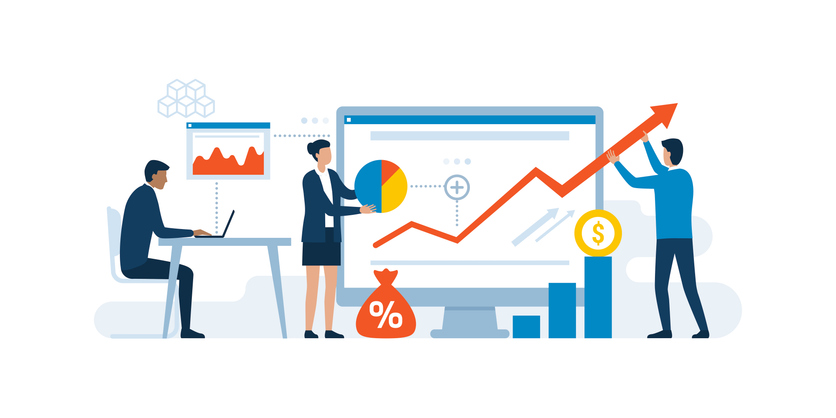Businesses need to future-proof their CRM solutions for digital business, now.
During the Covid-19 pandemic, remote working became a necessary practice and it has now become the norm for a majority of businesses.
The future was always going to be digital, but coronavirus has sped up that timeline — many businesses have had to empower their remote workforce to work productively in a very short space of time.
In this new remote working era, the customer can’t be forgotten and below, eight experts explain how to future-proof CRM solutions for digital business, and why it is necessary.
1. The why
Daryn Smith, chief strategy officer at Huble Digital, explains the CRM needs future-proofing because “legacy CRMs were very departmental centric, had often been approached by businesses in silos, and as a result, weren’t useful to the entire company.
“Businesses would end up with all these silos of customer data, having to log in and out of multiple systems and spending a lot of time and money figuring out integrations so the systems can talk to one another.
“Putting a CRM solution in place is an enabler for companies to become customer-first, so to future-proof CRM, it needs to be a solution that considers the needs of all departments, not just the sales, marketing or IT department.”
CRM Process Automation: how to implement in your organisation
2. CRM solution: the necessities
According to Ben Revill, senior business manager at Xpedition, “the most important thing is that your CRM solution has a combination of AI, modern integration technologies, and a User Interface that is clean, intuitive and runs on any device.”
These features are are of vital importance for three main reasons, as Revill highlights:
• CRM systems — these are only as valuable as the data that goes in and out of them, and you need integration with your front office, communications, social / digital marketing, finance and transactional systems in order to keep that data updated and relevant for servicing your customers.
• Digital-first businesses differentiate themselves using tech — such as AI and the insights from AI to drive better customer and user experiences and business outcomes (be it increased profitability or serving stakeholders better).
• No CRM system, or business for that matter, is future-proof unless it can attract and retain the best staff whilst servicing customers digitally. And that means having business applications that are intuitive and popular to use among millennials through to ‘Gen-Zs’.
“Modern ‘app-based’ business applications now make it easier than ever to introduce such features without wholesale system replacement, risk and disruption,” he adds.
3. No CRM silver bullet
Louise Whitcombe, head of customer engagement at Ogilvy UK, explains that CRM isn’t a magic bullet it’s an enabler.
“The success of your business depends on your business strategy and being consistently relevant to your customers. It is the business model that drives the specification for the solution not the other way around and this is where the challenge lies. As the speed at which market change increases, so too must our ability as organisations to adapt to it,” she says.
Instead, Whitcombe believes that businesses need a “CRM ecosystem that has the ability to cope with the demands of business models that increasingly need to adapt to the changing consumer world around them.”
Luckily, she points out that the current tech map shows the marketplace is absolutely teaming with shiny new solutions to businesses CRM challenges.
However, she warns that this myriad of opportunity can sometimes feel like a minefield of choice making it tricky to offset and balance CapEx and OpEx costs with the ROI and capabilities of differing solutions.
“Whilst there is no single solution that works for everyone as every business is different, there is a necessity that should underpin any CRM solution that will enable it to survive the ever-changing demands of the business,” Whitcombe continues.
“To future-proof CRM solutions, making users more efficient is a necessity. Covid-19 has meant there are less people doing more work. Therefore, more information is crucial for front line CRM users” — Mayling.
4. It’s all about the customer
The clue is in the name, “CRM isn’t about pushing what you want, it’s about truly understanding what your customer needs,” says Will Lowe, UK chief data officer at consultancy, Engine Transformation.
“To be future-proofed you must start at the end, ensuring you know the goal of what you want to offer.
“Once confirmed, you need to be clear on the elements that will allow you to reach your goal, which will be developments to one or a combination of data and analytics. To have a complete view of customers, you need to have data which is accessible, timely and accurate,” he explains.
5. An evolution not a revolution
Philip Mayling, founder and managing director of BuddyCRM, believes that “evolution not revolution is key in future-proofing your CRM system.”
Like Whitcombe, he warns against looking for the silver bullet that automates business and renders human interaction obsolete. “It is an unachievable goal,” he says.
“Instead of trying to land on the moon during your first mission, take it in stages and make CRM an interactive part of your business.”
Mayling adds: “The ability to react or pivot quickly is very important. By having the ‘evolution’ approach, you are in a position to always have budget (both financial and time) aside to react to changes in your business.
“Covid-19 has shown us that things can change in an instant, including business models. By investing in a CRM with no restrictions, SMEs are in the position to evolve their own use of the platform as they adapt to business change.”
“No single solution will meet every technological requirement of your business, your CRM solution needs to facilitate integration with multiple technology partners to ensure it best supports your customers, and therefore, your business needs” — Whitecomb.
6. Customer Experience Management
Instead of thinking thinking about future-proofing CRM solutions in isolation, Jamie Brighton, director of product marketing EMEA at Adobe, recommends that “companies should view CRM as a component of Customer Experience Management — or CXM –technology, and as a critical part of the overall customer experience, which in turn has a fundamental role in the overall success of their business.”
He says that in order to deliver the experiences that customers want and expect, “organisations need to ensure they have rich, unified customer profiles that track the explicit preferences of their customers in the context of their actions and behaviours, and, crucially, how they change over time.”
Like Revill, Brighton sees the value in artificial intelligence and explains that the technology “is…especially powerful in analysing the vast amount of customer data and recommending relevant actions for individual customers.”
7. Invest in new tech, now
“In times of uncertainty, changes to your technology stack might feel risky. But now is the right time for you to make changes and explore the issues you might encounter along the CRM implementation path,” says Peter Linas, EVP of corporate development and international at Bullhorn.
“Taking the time to future-proof your CRM system during downtime means you can respond quicker to market demand and gain market share on the upswing.”
He suggests that how businesses go about future-proofing their CRM system needs to be dictated by the business’ needs.
“It’s worth investing in a CRM solution that grows and shifts along with your business,” adds Linas.
Exploring the growing use of IT in B2B customer experience projects
8. A system of action
Tom Castley, head of UK at Outreach, suggests that the business leaders of today are growing more frustrated by how difficult it is to get the level of data they need to make informed decisions, especially when changes are happening so rapidly that the need for data has never been higher.
To combat this, many organisations are using sales engagement platforms to ensure that lack of data is never a problem.
“Sales engagement platforms capture the telemetry of sales and provide previously unheard of levels of visibility and clarity into what’s going on. All of this data is captured as a by-product of sales people doing their jobs and is entered in real time to the CRM system. This really takes the CRM system from a system of record to a system of action,” he says.







